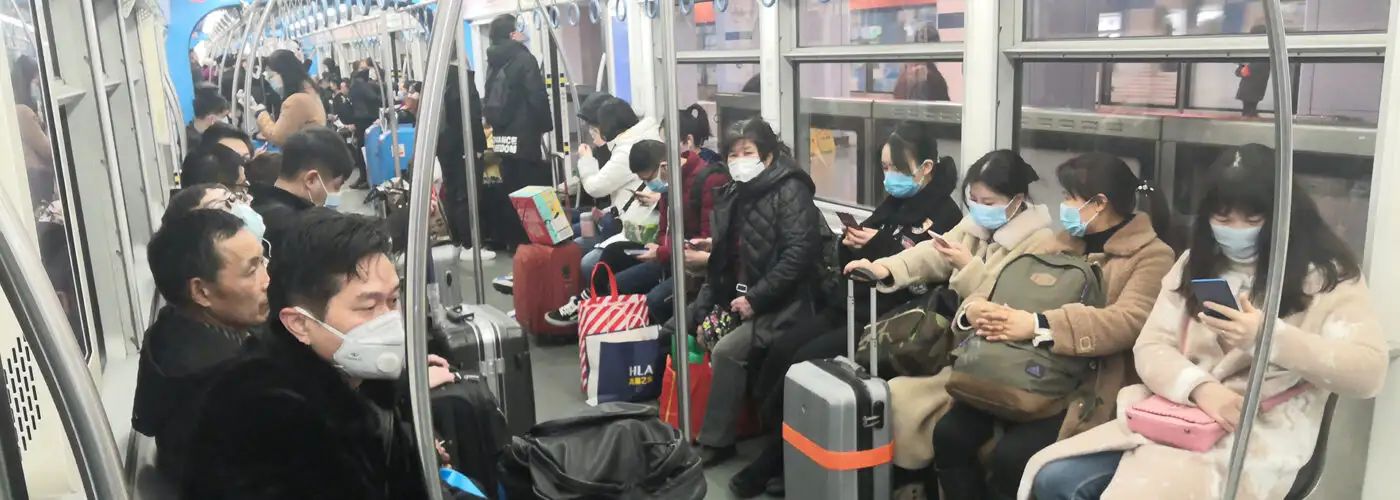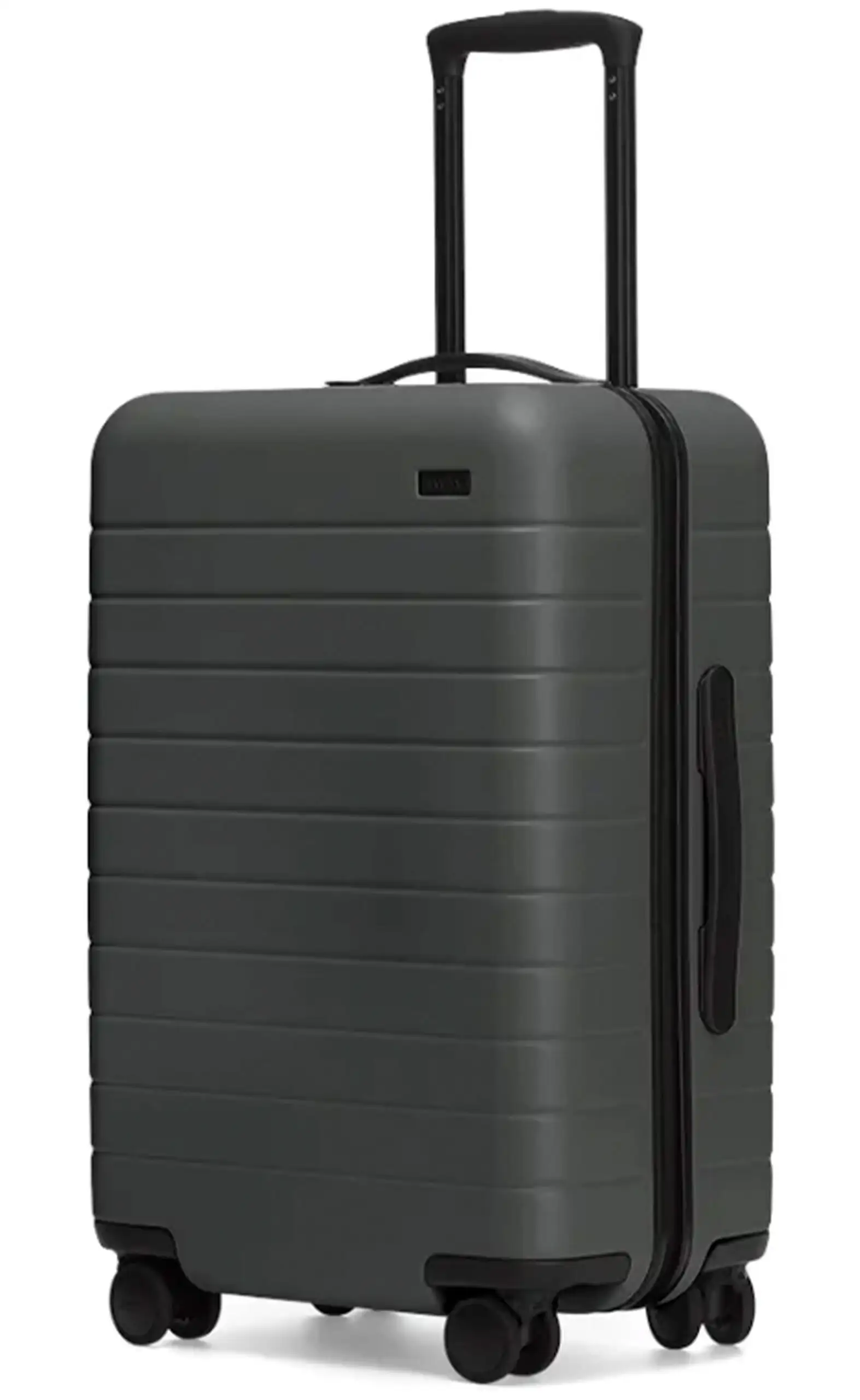The current coronavirus outbreak in China highlights a longstanding problem in travel: What to do when a contagious disease breaks out in an area you’d like to visit. A significant amount of travelers are concerned; a January poll by Airfarewatchdog (SmarterTravel’s sister site) found that 50 percent of travelers said the virus becoming more widespread would impact their travel plans, and the virus has spread around globe. But how do you know if you should actually cancel or adjust a trip based on a viral outbreak abroad?
Most of the answers are some combination of trivial and obvious, but it’s worth taking a look—at least from my perspective as a travel analyst, not a doctor or health expert.
Consider the Geography When Canceling
Canceling your China travel is the first “well, duh” answer. But a solid no-go area like central China doesn’t necessarily prevent you from traveling anywhere in the broader region: South Korea, Japan, and Thailand have also reported cases of the virus (here’s an up-to-date map of all the affected cities). The Chinese coronavirus arose in the city of Wuhan, in Hubei province. The Centers for Disease Control and Prevention (CDC) currently recommends against all non-essential travel to China:
- “The CDC recommends that travelers avoid all nonessential travel to China. In response to an outbreak of respiratory illness, Chinese officials have closed transport within and out of Wuhan and other cities in Hubei province, including buses, subways, trains, and the international airport. Additional restrictions and cancellations of events may occur. There is limited access to adequate medical care in affected areas.”
The State Department has upgraded China’s travel advisory to a Level 4, meaning do not travel. Wuhan, Hong Kong, and many cities in mainland China are locked down. The World Health Organization (WHO) declared a global health emergency on January 30 and shared advice for the public for reducing risk of infection: “Common signs of infection include respiratory symptoms, fever, cough, shortness of breath and breathing difficulties. In more severe cases, infection can cause pneumonia, severe acute respiratory syndrome, kidney failure and even death. Standard recommendations to prevent infection spread include regular hand washing, covering mouth and nose when coughing and sneezing, thoroughly cooking meat and eggs. Avoid close contact with anyone showing symptoms of respiratory illness such as coughing and sneezing.”
So, it’s safe to say you should avoid visiting China for the time being, with cancel-for-any-reason insurance being your best bet for recouping any lost bookings (see below for more on how travel insurance might help). But if you’re heading to another destination in Asia that has reported or may still report coronavirus cases, here’s what you can do if you don’t plan on canceling:
Avoid Dense Crowds
If you do plan on visiting broader Asia or other nearby cities, remember that keeping away from dense crowds is probably a good idea. Metros, crowded markets—you get the idea. In general, viral germs spread more quickly in densely populated areas.
Wear an Effective Mask
The two main prevention suggestions are washing hands frequently and wearing face masks—but the reliability of face masks are uncertain. Frequent hand washing of course helps reduce the risk of viral or bacterial infection, but only some experts say face masks can cut your risk significantly. If you do use one, masks rated as N95 filter out 95 percent of PM2.5 particles are considered the bare minimum for pollution protection.
Read Your Travel Insurance
Travel insurance is of course a key consideration. If you booked your trip months ago, most policies will likely cover cancellation penalties. If you’re already in an affected area, most medical coverage would cover local treatment costs and trip interruption coverage would cover an early return home. Reach out to your provider about the fine print to find out. But almost all policies limit coverage to unforeseen circumstances: So if you book a trip after an outbreak has occurred, any virus-related problems would almost certainly be considered as foreseen and therefore excluded. For more, see our Ultimate Guide to Travel Insurance.
To learn more about how travelers are responding to the coronavirus outbreak, see these poll results from Airfarewatchdog.
Editor’s note: SmarterTravel Editor Shannon McMahon contributed to this story.
More from SmarterTravel:
- 9 Products for Germaphobes to Bring on Every Trip
- 5 Ways to Avoid Getting Sick After Flying
- How to Disinfect Your Airplane Seat
Consumer advocate Ed Perkins has been writing about travel for more than three decades. The founding editor of the Consumer Reports Travel Letter, he continues to inform travelers and fight consumer abuse every day at SmarterTravel.
We hand-pick everything we recommend and select items through testing and reviews. Some products are sent to us free of charge with no incentive to offer a favorable review. We offer our unbiased opinions and do not accept compensation to review products. All items are in stock and prices are accurate at the time of publication. If you buy something through our links, we may earn a commission.
Related
Top Fares From
Today's Top Travel Deals
Brought to you by ShermansTravel
Shop and Save with Country Inns...
Patricia Magaña
 Hotel & Lodging Deals
Hotel & Lodging Deals
$229 -- Chicago: Discounted Rates and...
Francesca Miele
 Hotel & Lodging Deals
$229+
Hotel & Lodging Deals
$229+
$188 -- Honolulu: Save on Oceanview...
Abigail Lamay
 Hotel & Lodging Deals
$188+
Hotel & Lodging Deals
$188+









